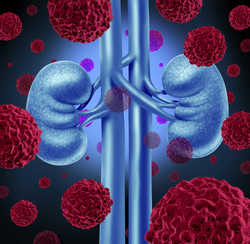Study reveals new information on genetic architecture of kidney cancer
The study, which involved a large group of kidney cancer patients in Europe, reveals new information on the genetic architecture of the disease. It also shows an apparent link between exposure to aristolochic acid and incidence of kidney cancer, particularly in Romania. Renal Cell Cancer (RCC) is a serious public health problem within Europe, where the highest global incidence of the disease is found. The number of RCC cases has been increasing over the last two decades, and it is now the eighth most common cancer in Europe. This study reveals that there is a link between this type of cancer and aristolochic acid, a compound found in plants of the Aristolochia genus. One of these plants, Aristolochia clematitis, commonly occurs throughout the Balkans. Led by scientists from the McGill University and Genome Quebec Innovation Centre in Montreal, the study involved whole-genome sequencing on DNA isolated from blood and tumour tissue samples and RNA sequencing on tumour and matched normal tissue samples taken from a total of 94 kidney-cancer patients in four countries: the Czech Republic, Romania, Russia and the United Kingdom. Yasser Riazalhosseini, an assistant professor of genetics at McGill notes, ‘The most striking observation was the high frequency of a specific type of mutation pattern found in the Romanian patients. The specific sequence context surrounding these mutations and their predominance on the non-transcribed strand of DNA enabled us to hypothesize that the mutation is due to exposure to aristolochic acid during the patient's lifetime.’ Professor Mark Lathrop, scientific director of the McGill University and Genome Quebec Innovation Centre, adds, ‘While the study included only 14 patients from Romania, the specific mutation pattern was found in 12 of them. As a result, we will analyze samples from more patients from Romania and elsewhere in the Balkan region, in follow-up research that is now underway to assess the extent of exposure’. The study was carried out under the CAGEKID project, a part of the International Cancer Genome Consortium (ICGC). Coordinated by the Jean Dausset Foundation CEPH in France, CAGEKID concluded in August 2014 after over three years of research. The CAGEKID project team succeeded in identifying potential biomarkers for RCC from complete genome mapping of 45 samples. Biomarkers like this could be used for early diagnosis and to provide targeted therapy. Ultimately, this could improve the prognosis for affected patients and give valuable insights into the variability in RCC incidence across Europe and globally. For further information, please visit: CAGEKID http://www.cng.fr/cagekid/index.html
Countries
France



